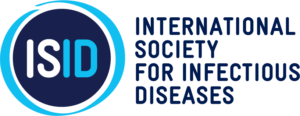Malaria remains a significant global health challenge, and despite advancements in prevention and treatment, questions persist about the adequacy of current measures. Malaria, a preventable and treatable disease, continues to claim hundreds of thousands of lives annually. In 2023, the World Health Organization (WHO) reported approximately 263 million cases and 597,000 deaths globally. The African region bears the heaviest burden, accounting for 94% of global cases and 95% of malaria-related deaths.
Despite all the challenges, encouraging progress has been made. As of January 2025, 45 countries and one territory have been certified malaria-free by the WHO. Timor-Leste and Saudi Arabia maintained zero indigenous cases for three consecutive years, leading to their removal from the list of malaria-endemic countries.
Current relevant Innovative Strategies include:
- Genetic Engineering of Mosquitoes: Research consortia, such as Target Malaria, are exploring genetic modifications to reduce mosquito populations or inhibit their ability to transmit the parasite.
- Malaria Vaccines: Vaccines such as RTS,S/AS01 and R21/Matrix-M are being rolled out in African countries and have shown promising results in reducing malaria cases, especially in children.
- Regional Action Plans: Frameworks like the Plan of Action for Malaria Elimination 2021–2025 (Region of the Americas) provide region-specific strategies that are essential to tailoring interventions for success.
But... Are We Covered Enough?
While innovations are progressing, coverage remains uneven. Major challenges include:
- Limited Access to insecticide-treated nets and indoor spraying in remote communities.
- Weak Healthcare Infrastructure that delays diagnosis and treatment.
- Lack of Awareness and education around prevention methods.
- Insufficient Funding and inconsistent political will across some high-burden countries.
To overcome these, we must bridge equity gaps, strengthen health systems, and build resilience through policy, science, and innovation. The fight against malaria has seen tremendous progress, but gaps in prevention, access, and political commitment threaten gains. Strengthening partnerships, embracing innovation, and ensuring that no community is left behind will be key to achieving malaria elimination.
ISID joins this year's commemoration under the theme "Malaria Ends With Us: Reinvest, Reimagine, Reignite." This powerful message supports the efforts of all stakeholders to accelerate progress towards a malaria-free world.
Written by ISID Emerging Leader, Nelisiwe Lynneth Mhlabane.
Nelisiwe is an Epidemiologist, Research Manager, and Public Health Specialist.
